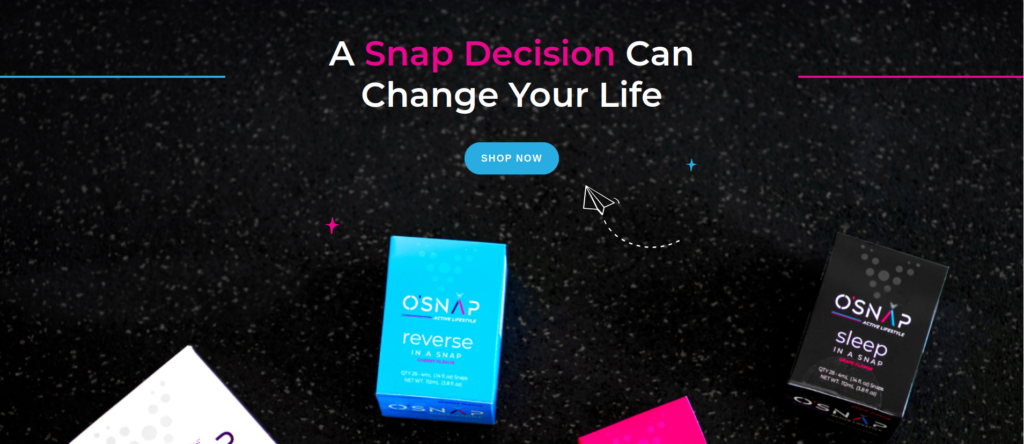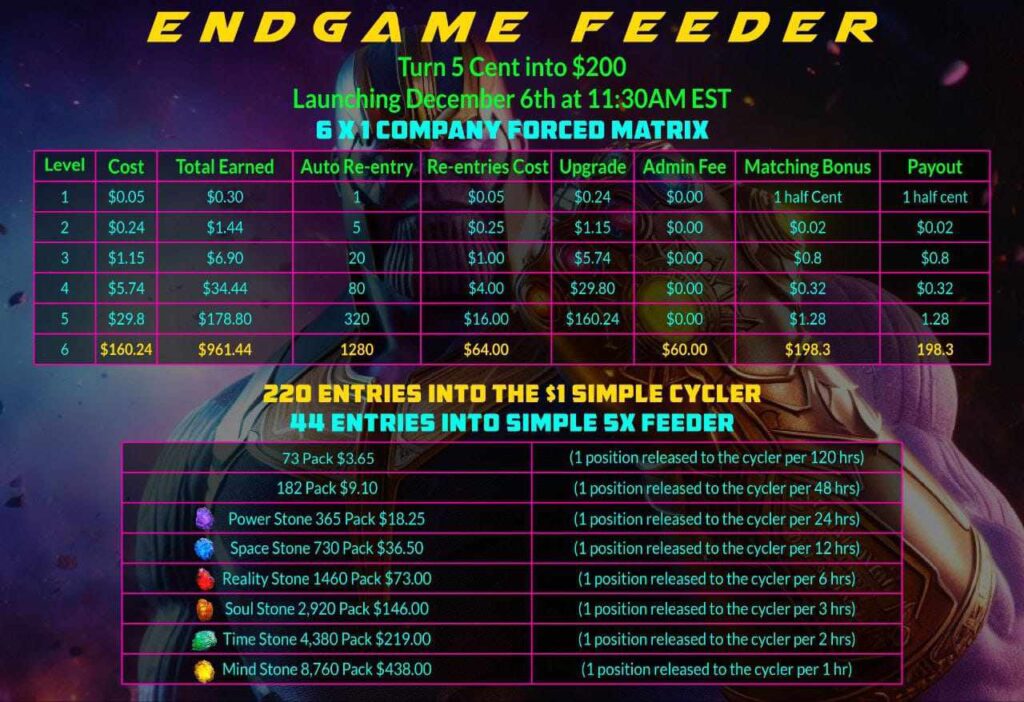Online MLM Programs
Multi-Level Marketing (MLM) companies that offer powerlines typically have a structure where distributors can earn commissions from the sales made by people in their downline. A powerline is a term used to describe the placement of a new distributor in a particular position in the downline. The MLM company or the distributor recruiting them often determines this position.
While some MLM companies may advertise their powerline system to help new distributors quickly build their downline and earn commissions, it’s essential to be cautious and do your due diligence before joining any MLM opportunity. MLMs relying heavily on recruitment and promising unrealistic income potential can be risky and even illegal pyramid schemes.
Before joining any MLM, thoroughly research the company, including its compensation plan, products or services, and reputation within the industry. Look for MLMs focusing on selling quality products or services rather than just recruitment. Ensure that the company is transparent about its earnings potential and associated costs or fees.
FTC REGULATIONS on MLM
The Federal Trade Commission (FTC) is the regulatory agency in the United States responsible for enforcing laws related to deceptive and unfair business practices, including those related to MLMs. Here are some key regulations that the FTC has put in place regarding MLMs:
- MLMs must have a viable product or service: The FTC requires that MLMs have a legitimate product or service sold to consumers outside of the MLM network and that distributors earn commissions based on actual product or service sales rather than just recruiting others into the business.
- MLMs must provide accurate earnings representations: The FTC requires that MLMs provide precise information about potential earnings and the actual earnings of their distributors. They cannot make misleading or exaggerated claims about the income potential of their business opportunity.
- MLMs cannot require significant upfront investments: The FTC prohibits MLMs from requiring large upfront investments or inventory purchases as a condition of joining the business. MLMs must also offer a refund or buyback policy for unsold inventory.
- MLMs must disclose key information: The FTC requires MLMs to provide potential recruits with key information about the business, including the compensation plan, any fees or costs associated with joining the business, and the average earnings of distributors.
- MLMs cannot be pyramid schemes: The FTC prohibits MLMs from operating as pyramid schemes, where distributors primarily earn commissions based on recruiting new members rather than selling products or services.
It’s important to note that MLMs are regulated at federal and state levels, and specific regulations can vary by state. If you are considering joining an MLM, it’s essential to research and understands the general regulations that apply to the company and MLMs.LMs that operate as Ponzi schemes, where the majority of income is generated through recruiting new members rather than selling products or services, are illegal and can be subject to enforcement actions and fines by the FTC.
In recent years, the FTC has taken action against several MLMs that were found to be operating as Ponzi schemes, including:
- Vemma: In 2015, the FTC shut down Vemma, a health and wellness MLM, and charged the company with operating as a pyramid scheme. The company was fined $238 million and ordered to provide consumer refunds.
- Herbalife: In 2016, Herbalife, a nutrition MLM, agreed to pay a $200 million settlement to the FTC and restructure its business model after the agency charged it with operating as a pyramid scheme.
- Digital Altitude: In 2018, the FTC shut down Digital Altitude, a business coaching MLM, and charged the company with operating as a pyramid scheme. The company was fined $54 million and its assets were seized.
These fines serve as a warning to other MLMs that operate similarly, and the FTC continues to monitor the MLM industry closely for any potential violations of consumer protection laws.
Yes, MLMs must have a real product or service that is sold to consumers outside of the MLM network in order to be within FTC guidelines. The FTC requires that MLMs have a legitimate product or service sold to customers at a fair price, and that distributors earn commissions based on actual sales of the product or service rather than just recruiting others into the business.
This requirement ensures that MLMs operate as legitimate businesses and not as pyramid schemes, where the primary focus is recruiting new members rather than selling products or services. MLMs focusing primarily on recruitment without a legitimate product or service can be illegal pyramid schemes subject to enforcement actions and fines by the FTC.
In addition, the FTC requires MLMs to provide accurate information about the product or service they offer, including any health or income claims, and to disclose critical information about the business opportunity to potential recruits, including the compensation plan, any fees or costs associated with joining the business, and the average earnings of distributors.
Overall, the FTC’s guidelines are designed to protect consumers and ensure that MLMs operate fairly and transparently. If you are considering joining an MLM, it’s important to research the company thoroughly and understand the regulations that apply to the MLM industry.
If a company pays you only for brining in new members in MLM is that legal
No, if a company pays you only for bringing in new members in an MLM, without requiring or incentivizing the sale of a legitimate product or service, it is likely operating as an illegal pyramid scheme.
The FTC requires that MLMs have a real product or service sold to consumers outside of the MLM network, and that distributors earn commissions based on actual sales of the product or service rather than just recruiting others into the business. MLMs focusing primarily on recruitment without a legitimate product or service can be illegal pyramid schemes subject to enforcement actions and fines by the FTC.
In addition, if the primary focus of the MLM opportunity is on recruiting new members rather than selling a product or service, it can be difficult or impossible to earn income in the business without recruiting new members. This can create a situation where most members lose money while only a tiny percentage at the top of the pyramid earns a significant income.
Overall, it’s essential to be cautious and research before joining any MLM opportunity. Look for MLMs that focus on selling quality products or services rather than just recruitment, and ensure that the company is transparent about its earnings potential and any associated costs or fees.
If an MLM does not require you to recruit and promises you will make money, it may or may not be legal, depending on several factors. Here are a few things to consider:
- Legitimate product or service: The FTC requires that MLMs have a legitimate product or service sold to consumers outside the MLM network. If the company does not have a real product or service, or if the product or service is not being sold to customers outside of the MLM network, it may be operating as an illegal pyramid scheme.
- Focus on sales: The FTC also requires that MLMs focus on selling products or services rather than just recruitment. If the company’s primary focus is recruitment and not selling products or services, it may be operating as an illegal pyramid scheme.
- Income claims: If the company promises that you will make money without any effort on your part, or if it makes exaggerated income claims without providing evidence to support them, it may be violating FTC regulations.
- Compensation plan: It’s important to review the company’s compensation plan carefully and understand how you will be paid. If most of the compensation comes from recruiting new members rather than selling products or services, it may be an illegal pyramid scheme.
Overall, it’s essential to be cautious when evaluating any MLM opportunity and to research before investing time and money into the business. Look for companies with a legitimate product or service, focusing on sales rather than recruitment and providing accurate and transparent information about their compensation plan and earnings potential.
Actual Income Disclosure Statements
An Income Disclosure Statement (IDS) is a document provided by MLM companies that shows the earnings of their distributors. The purpose of an IDS is to give potential recruits an idea of the income that can be expected from the MLM opportunity.
An IDS typically includes information such as the percentage of distributors that earn each level of income, the average income for each level, and any qualifications or requirements for each level.
Some MLM companies provide IDSs voluntarily, while others are required to do so by law. Several states in the United States have laws requiring MLMs to provide an IDS to potential recruits.
It’s important to review an IDS carefully and understand the data’s limitations. For example, the income shown in an IDS may not include expenses or fees associated with the MLM opportunity and may only represent a small percentage of distributors. In addition, some MLMs may use earnings from all sources, including earnings from other businesses or employment, in their IDS, which can be misleading.
Overall, an IDS can be a helpful tool when evaluating an MLM opportunity. Still, it’s essential also to do your own research and carefully consider the business’s risks and potential rewards before investing time and money into it.
The FTC has taken legal action against several MLM companies for operating as illegal pyramid schemes or engaging in deceptive practices. Some examples include:
- Herbalife: In 2016, Herbalife agreed to pay $200 million to settle allegations that it operated as an illegal pyramid scheme and deceived its distributors about the potential earnings from the business.
- Vemma: In 2015, the FTC shut down Vemma and charged the company with operating as an illegal pyramid scheme.
- Neora (formerly Nerium): In 2020, Neora agreed to pay $20 million to settle FTC allegations that it operated as an illegal pyramid scheme and made false and unsubstantiated health claims about its products.
It’s important to note that legal action or fines against MLM companies are not limited to these examples and that the entire MLM industry has faced scrutiny and criticism for its business practices. Before joining any MLM, it’s essential to do your own research and carefully evaluate the risks and potential rewards of the opportunity.
Selling supplements and vitamins as MLM
Selling supplements and vitamins as an MLM (multi-level marketing) opportunity is common in the industry. MLM companies that sell health and wellness products typically recruit independent distributors to sell their products to customers, often through personal recommendations or social media.
Many MLM companies sell supplements and vitamins, and the quality and effectiveness of these products can vary widely. Doing your own research and carefully evaluating the products before investing time and money into an MLM opportunity is essential.
In the United States, the FDA regulates supplements and vitamins as dietary supplements. While the FDA does not approve dietary supplements before they are marketed, companies must follow certain regulations, including labeling requirements and good manufacturing practices.
However, it’s important to note that MLM companies are not necessarily held to higher standards than other supplement manufacturers. Some have faced criticism and legal action for making false or misleading health claims about their products.
As with any MLM opportunity, it’s essential to carefully evaluate the business opportunity and the products sold before investing time and money. Look for companies that have a proven track record, transparent information about their compensation plan, and products that are high quality and backed by scientific evidence.











.jpg)






Recent Comments